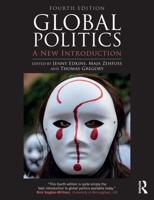Publisher's Synopsis
9/11 has become more than a date. It has become a noun, an idea shaped and moulded by the media and the American political establishment, and the rationale for the subsequent 'War on Terror'. But what are the real factors that have motivated the world?s sole remaining superpower to engage in a permanent war declared on an often elusive and abstract enemy and risk the very relationships that have augmented that global status? - - While the tragic events of 11 September 2001 caused a sea-change in the perception and realities of American security interests and its ability to project a foreign policy agenda; simplistic views that the resulting War on Terror is merely 'reactionary warfaring' no longer carry any credibility. To fully understand the direction of contemporary US foreign policy requires a detailed understanding of the complex political, historical and personal processes which influence America's new sense of itself and its view of the world. Written by a collection of leading analysts in the field, America's War on Terror sheds new light on the causes of the War on Terror, the domestic and foreign policy implications and the forthcoming challenges for the United States and the global community. - - Features include: - · Four specifically designed sections analyzing the origins and the implications of the War on Terror for the United States and the broader global community. - - · Historical background on the US relationship with militant Islamic extremism and the contemporary policy choices of the United States. - - · Wide-ranging and diverse perspectives presented by a varied collection of contributors. - - · A wealth of new original studies providing the analytical means with which to understand both the factors behind the attacks and the nation's response to them. - - This engaging volume will be essential reading for all those seeking to understand the background to the War on Terror, contemporary US foreign policy, security, Islamic terrorism and international relations. -










